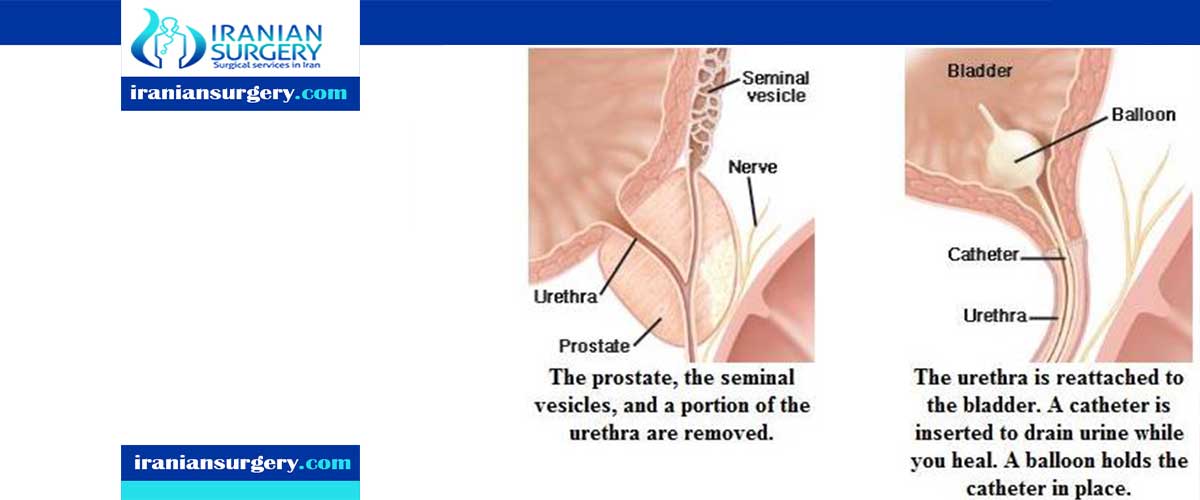prostatectomy complications

prostatectomy complications
what are the complications and risks of prostatectomy ?
The risks with any type of radical prostatectomy are much like those of any major surgery. Problems during or shortly after the operation can include:
- Bleeding
- Urinary tract infection
- Urinary incontinence
- Erectile dysfunction (impotence)
- Injury to the rectum (rare)
- Narrowing (stricture) of the urethra or bladder neck
- Formation of cysts containing lymph (lymphocele)
Rarely, part of the intestine might be injured during surgery, which could lead to infections in the abdomen and might require more surgery to fix. Injuries to the intestines are more common with laparoscopic and robotic surgeries than with the open approach.
If lymph nodes are removed, a collection of lymph fluid (called a lymphocele) can form and may need to be drained.
In extremely rare cases, a man can die because of complications of this operation. Your risk depends, in part, on your overall health, your age, and the skill of your surgical team.
10 common questions about prostatectomy complications
1How long does it take to recover from prostate surgery?
The catheter needs to be in place until your urethra heals, usually about two or three weeks. Within a few hours of the surgery, most patients are able to move around and eat a normal dinner. You can probably go home in two or three days. What can I expect when I get home?
2What is a simple prostatectomy?
Simple prostate removal is a procedure to remove the inside part of the prostate gland to treat an enlarged prostate. It is done through a surgical cut in your lower belly
3What is the difference between prostatectomy and radical prostatectomy?
This enlargement of the prostate is called benign prostatic hyperplasia, or BPH. Simple prostatectomy doesn't remove the entire prostate, as in a radical prostatectomy, but instead removes just the obstructive part of the prostate that's blocking the flow of urine
4How is a prostatectomy done?
Radical prostatectomy is performed through this incision. In rare cases, the incision is made in the perineum, the space between the scrotum and anus. In laparoscopic prostatectomy, surgeons make several small incisions across the belly. ... The surgeon views the entire operation on a video screen.
5Is a prostatectomy major surgery?
The main type of surgery for prostate cancer is a radical prostatectomy. In this operation, the surgeon removes the entire prostate gland plus some of the tissue around it, including the seminal vesicles
6How serious is a Gleason score of 7?
The higher the Gleason Score, the more likely that the cancer will grow and spread quickly. Scores of 6 or less describe cancer cells that look similar to normal cells and suggest that the cancer is likely to grow slowly. A score of 7 suggests and intermediate risk for aggressive cancer
7Does viagra work after prostate surgery?
A new study, however, shows that Viagra (sildenafil), the popular medication for erectile dysfunction, can restore impotency lost in surgery. Whether men respond, however, depends on how much nerve damage occurred during surgery. ... All were prescribed Viagra following prostate removal surgery
8What's a normal PSA level by age?
The use of age-specific PSA ranges for the detection of prostate cancer is helpful to avoid unnecessary investigations in older men with larger prostate glands (typically walnut-sized). Median PSA value for men aged 40 to 49 years is 0.7 ng/mL and for men 50 to 59 years is 0.9 ng/mL
9Can prostate cancer come back after prostatectomy?
It is possible for prostate cancer to return after a prostatectomy. One study from 2013 suggests that prostate cancer recurs in around 20–40 percent of men within 10 years of having a radical prostatectomy. ... In this article, learn more about the symptoms, treatment, causes, and stages of prostate cancer.
10What is Transvesical prostatectomy?
Prostatectomy refers to the surgical removal of part of the prostate gland (transurethral resection, a procedure performed to relieve urinary symptoms caused by benign enlargement), or all of the prostate (radical prostatectomy, the curative surgery most often used to treat prostate cancer)
[kkstarratings]


